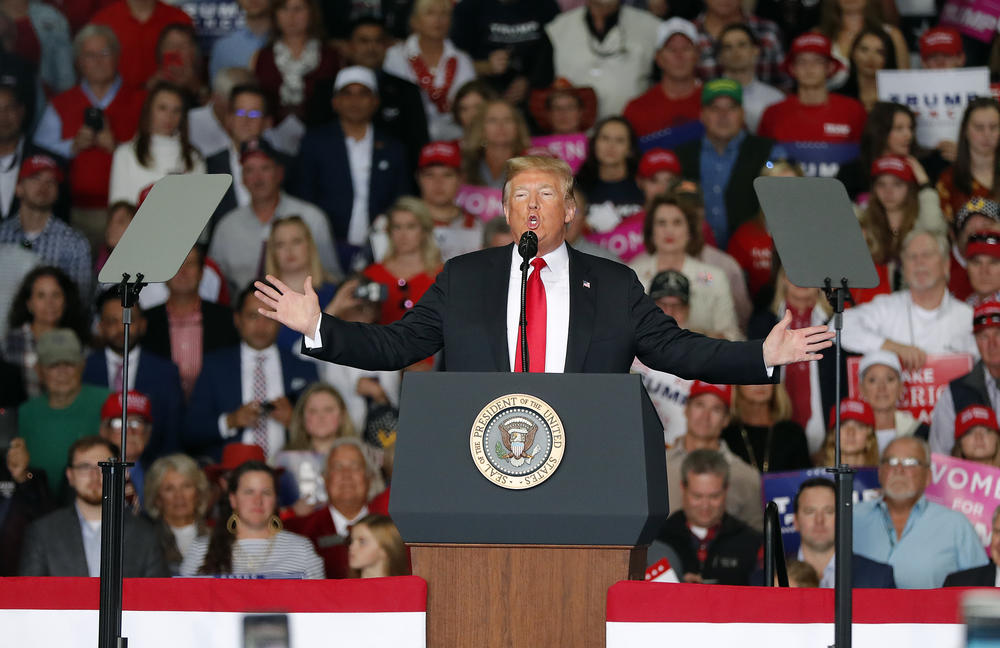
Caption
Former President Donald Trump's lawyers filed motions in March 2023 seeking to effectively block any prosecution stemming from a special purpose grand jury's investigations into 2020 election meddling in Georgia.
Credit: AP Photo/John Bazemore

